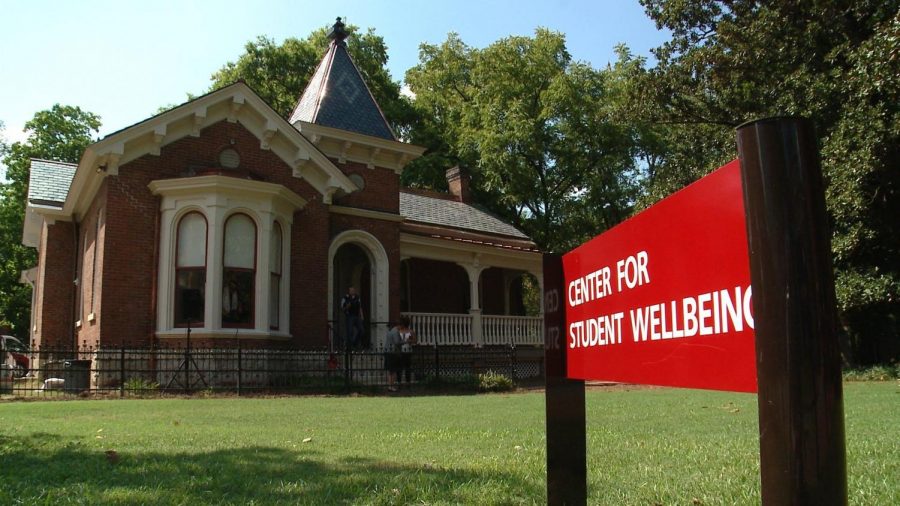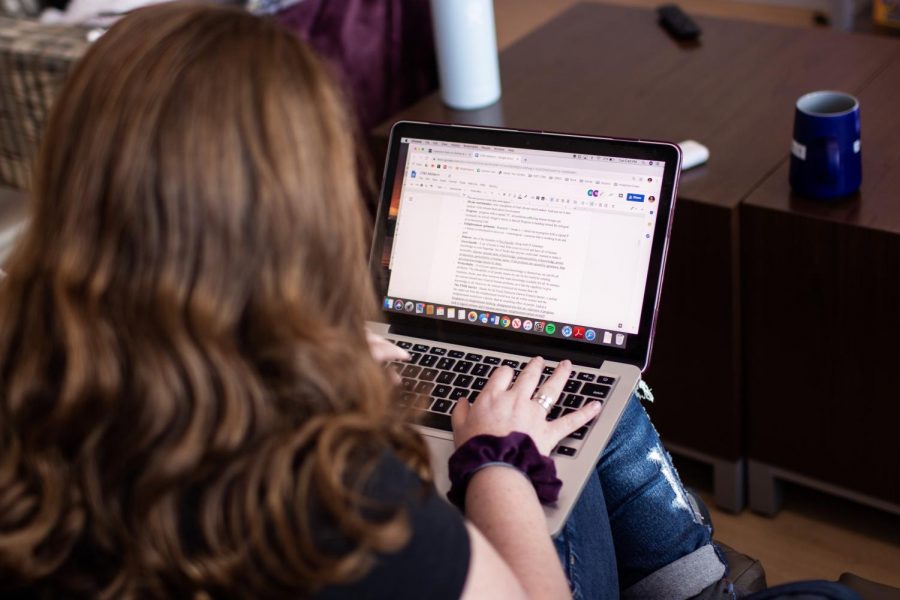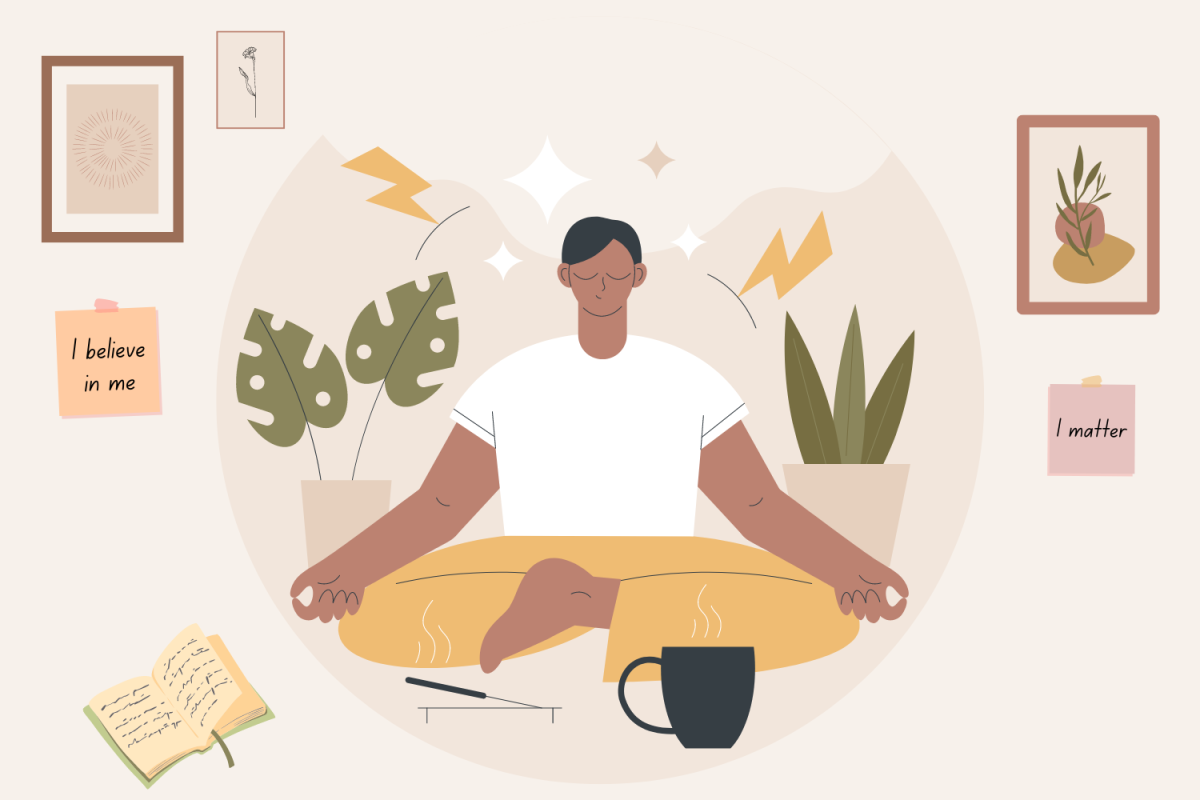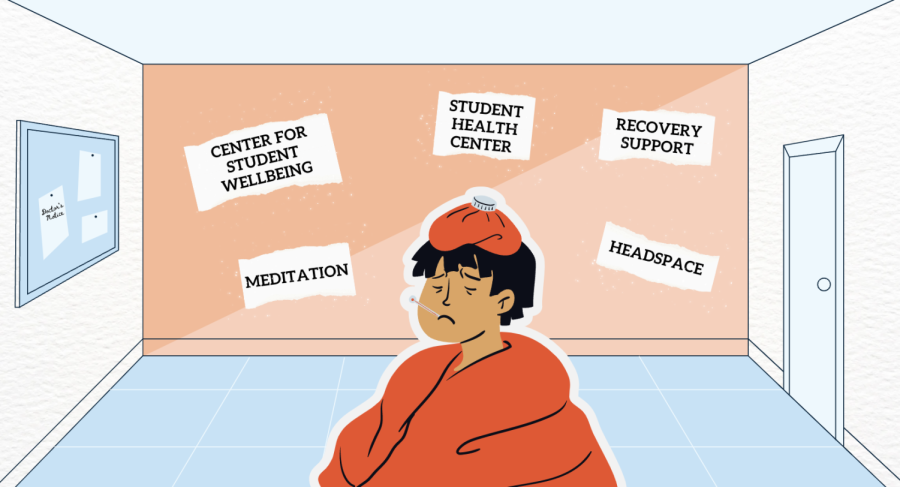We are currently in the midst of a mindfulness revolution as people around the globe are turning to mindfulness practices like meditation or listening activities to help center their busy minds. According to the American Psychological Association, engaging in these behaviors for as little as ten minutes a day has been shown to reduce stress, increase productivity and help cope with anxiety or depression.
Mindfulness encourages one to step away from all the distractions and engage thoughtfully in the present moment. In an age where we incessantly check social media for updates about the outside world, we are rarely alone with our own thoughts. Though it may be difficult to step away from technology and a demanding workload, mindfulness has repeatedly been shown to yield immense benefits.
Mindfulness is free, accessible and flexible. As college students with loaded schedules, we often find ourselves struggling to find a free minute to breathe on a daily basis. Yet one can engage in mindfulness nearly anywhere and anytime. You can practice mindfulness with others or individually, and can do so in any space you feel comfortable in. Typically, most practices or exercises last around half an hour, but can be tailored to your preferences.
There are many opportunities to engage in mindfulness on campus. The Center for Student Wellbeing offers weekly guided and silent meditation practices, which can be further viewed through their website. In the guided sessions, a single speaker reads a variety of prompts that allow you to reflect and transport your mind elsewhere. Although we all have a million assignments, exams and other commitments, these sessions are only thirty minutes long and are an extremely refreshing way to break up a hectic day.
Additionally, Rabbi Shlomo Rothstein has been leading a series on mindfulness this past semester. The series, “Living in the Moment,” aims to normalize mindfulness practices by building healthy mental habits. Students spend roughly 30 minutes engaging in reflective prompts and breathing exercises to recenter themselves and exercise their minds in new ways. Over the semester, Shlomo has gotten to work with a committed group of students who find the practices both relaxing and empowering.
With the increasing focus on mental health in the past decade, Shlomo began this series in an effort to further benefit students. Although we frequently encourage one another to take care of our mental well-being, it is more difficult to implement these practices in actionable ways. Oftentimes we want to improve our mindset, but simply get stuck perpetuating the same streams of negative thoughts.
“These sessions were predicated on the idea that we are propelled to existence at all times,” Shlomo said. “A healthy mind enables us to accomplish tasks to the best of our ability and extract the most from our lives.”
Shlomo stated how there is already goodness present in the world, and that with a healthy mindset we can more easily access this goodness and minimize negative streams of thought. Shlomo will be running the series again next fall, and hopes to continue to help Vanderbilt students shift their mindsets so they are better able to appreciate life’s journey, failures and missteps included.
For those of us looking for a quick and easy way to engage in mindfulness, there are lots of apps that you can download and use on your own time. Headspace, for example, can help you implement mindfulness into your everyday activities and offer a variety of exercises, sleep tools and listening activities depending on your mood, lifestyle and goals. Headspace has a ten day free trial and also offers a $10 monthly student subscription.
You can also practice mindfulness with streaming services like Spotify or YouTube. Simply type “mindfulness” into your Spotify search bar and you will find hundreds of different songs, playlists and podcasts that aim to improve your connection with the present moment. Exercises provided by the Meditation Relax Club, for example, range from only seven to nine minutes, providing the perfect momentary escape as you walk to class.
With finals right around the corner, it seems as though many students are feeling overworked, sleep-deprived and potentially over-caffeinated. Attending a meditation session or listening to a brief podcast only takes a few minutes, and can help steer you towards a healthier mindset. Although everyone copes with stress in different ways, pop in your headphones or head over to the Center for Student Wellbeing to take some time to re-energize, de-stress and engage in mindfulness.







